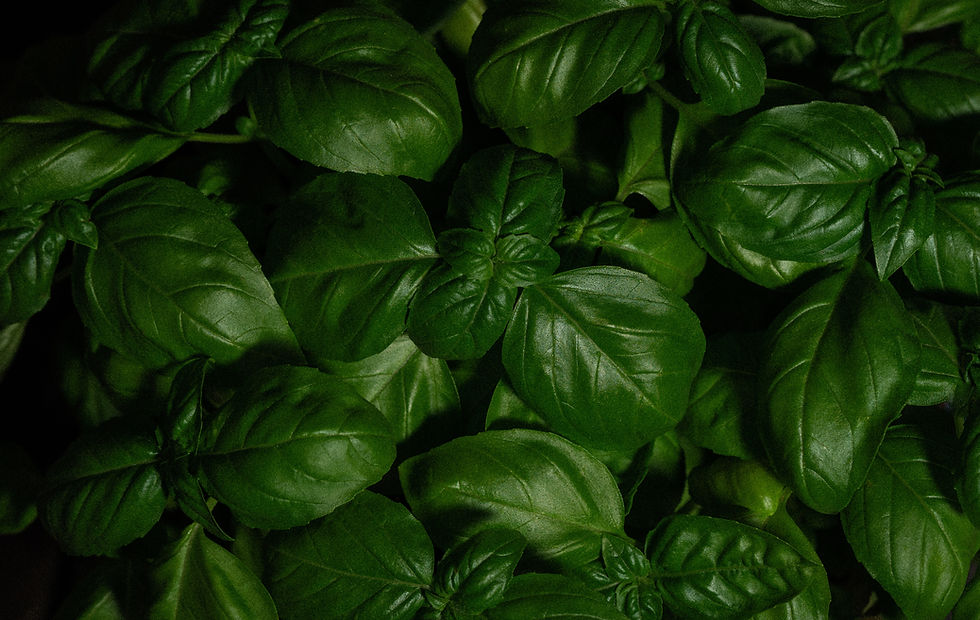Plants that Repel Fleas & Ticks (Safe for Pets)
- The Sisters

- Jun 5, 2020
- 3 min read
Updated: Mar 8, 2025
Take a look at these 6 Easy-to-Grow Plants that Repel Fleas & Ticks. Growing pest-repelling plants is just one of many sustainable and environmentally friendly ways of repelling fleas and ticks from your backyard. Not only do these plants enhance the beauty of your garden, but they also serve a practical purpose by helping to keep these unwanted pests at bay. By incorporating these plants into your landscaping, you can create a more harmonious outdoor space that is less prone to infestations.
Here are six plants to consider in your shortlist:
Lavender: Known for its delightful fragrance, lavender is not only a favorite for gardeners but also a natural repellent for fleas and ticks. Its strong scent masks the odors that attract these pests, making your garden a less appealing habitat for them.

A vibrant field of lavender Rosemary: This hardy herb is not only a culinary delight but also an effective deterrent against ticks and fleas. Its dense foliage and aromatic oils create an environment that is unfavorable for these pests, while also providing a beautiful addition to your herb garden.

Mint: With its vigorous growth and refreshing scent, mint is a powerful ally in the fight against fleas and ticks. The strong aroma of mint can confuse and repel these pests, making it an excellent choice for planting in areas where your pets frequent.

Min Marigolds: Bright and cheerful, marigolds are not just visually appealing; they also produce a natural compound called pyrethrum, which is known to repel a variety of insects, including fleas and ticks. Planting marigolds around your garden can create a vibrant and pest-free zone.

Marigolds Basil: This popular culinary herb is not only great for cooking but also serves as a natural insect repellent. The strong scent of basil is known to deter fleas and ticks, making it a multifunctional plant that can thrive in both gardens and containers.

Basil Catnip: While it may attract cats, catnip is also effective at repelling fleas. The nepetalactone compound found in catnip can deter fleas, making it an excellent choice for gardens where pets roam.

By incorporating these carefully selected plants into your gardening routine, you can create an effective natural barrier against fleas and ticks, which are notorious for invading outdoor spaces and posing health risks to both pets and humans. These plants not only serve as a deterrent to these pesky parasites, but they also offer a plethora of additional benefits that can significantly enhance your gardening experience. For instance, many of these plants are known to attract beneficial insects, such as ladybugs and lacewings, which are essential for maintaining a balanced ecosystem by preying on harmful pests. This natural pest control method reduces the need for chemical pesticides, promoting a healthier environment for your plants and the wildlife that frequents your garden.
Moreover, by incorporating a diverse array of flora, you can enhance the overall biodiversity of your garden. Biodiversity is crucial as it fosters resilience against diseases and pests, ensuring that your garden remains vibrant and productive throughout the seasons. Additionally, a diverse garden can provide habitats for various species, contributing to the ecological health of your local area. Beyond ecological benefits, many of these plants can also serve a practical purpose in your kitchen. Fresh herbs, such as basil, rosemary, and mint, not only add flavor and fragrance to your culinary creations but also provide essential nutrients and health benefits. Imagine stepping into your backyard to snip fresh herbs for a delicious meal, all while knowing that your garden is actively working to keep harmful insects at bay.
Consider adding these beneficial plants to your backyard to cultivate a healthier and more sustainable outdoor environment. Not only will you enjoy the aesthetic appeal of a lush, vibrant garden, but you will also take proactive steps towards creating a sanctuary for both yourself and the local wildlife. This approach not only enhances your gardening experience but also contributes positively to the environment, ensuring that your outdoor space is both beautiful and functional. Embracing this natural gardening philosophy can lead to a more rewarding and enriching relationship with nature, making your gardening efforts truly worthwhile.




Comments